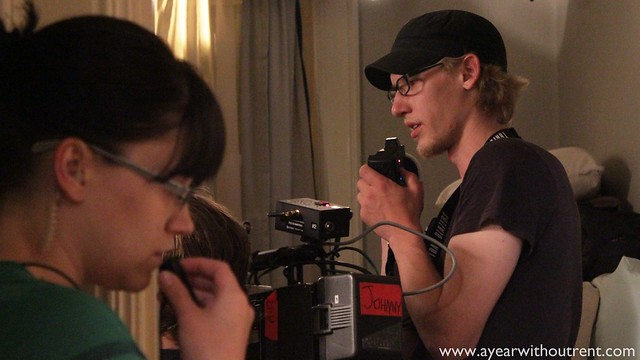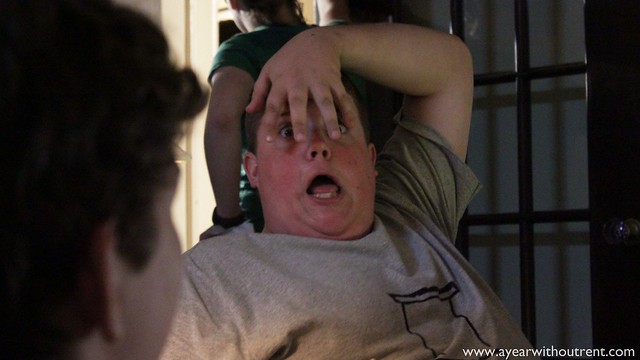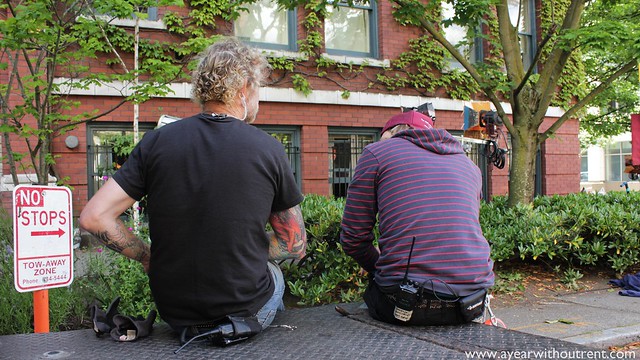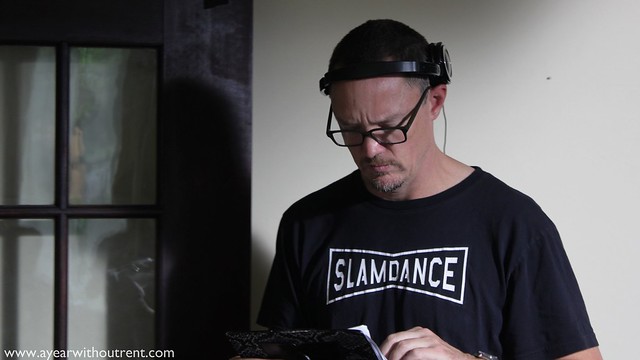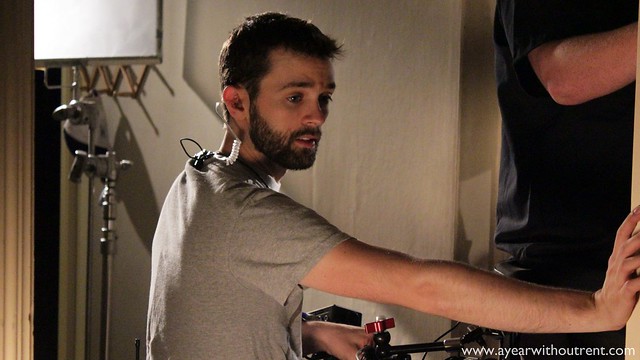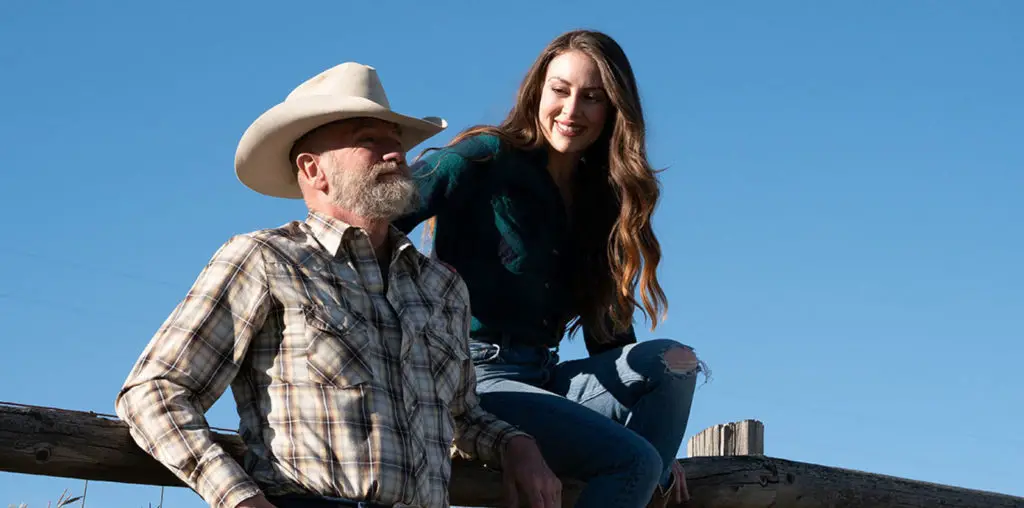
In the world of micro budget indie film, the term “G&E Department” is a bit misleading. The only time you can make a distinction between G & E is when the two people in the department have names like Gary and Ethan. The Grips work Electric and vice versa. Hell, a lot of people (myself included) will just say “Grips” as a catch-all for everyone in G&E. It’s easier that way, especially when there’s only 3 people total in the whole department and one of them is probably in the camera department anyway (or sound).
Today I’m with Electric, which is not only separate from Grip, but even has a separate channel on the walkie, under the tutelage of Kevin Cook. Kevin, like so many of the people I meet these days, ended up here via a circuitous route. Initially an actor, he got on his first film set and was fascinated by the crew–all the wires and cables and lights and everything that makes a film run–and decided that he wanted to learn how to do that. And so, he started learning everything he could. One foot in behind the camera. One in front of it. He’ll be on shoots where on Monday he’ll be a day player and on Tuesday he’ll be stringing cables.
I don’t know if that says more about the state of independent film or the state of the economy. Probably a little bit of both.
Much like Dan the other day, Kevin shows me the ropes, taking me through each thing as we do it–stuff like the proper and most efficient way to set up a Kino bank so that it’s a versatile as possible when actually in use. At every opportunity, we take time to keep things organized, simple things like separating the stingers into piles of 25 feet verses 50 feet, keeping the gels from erupting all over the hallway, stuff like that. It’s simple stuff, the sort of thing that isn’t all that much fun in and of itself, but it’s easy to see the mentality behind it.
A successful production relies on a lot of things, but the key problem is trying to get X number of pages done in a certain day. It’s a simple concept, but every minute that the camera isn’t running, whether it’s because the actors have wandered off or a P.A. is busy flirting or the crew is trying to set up lights, is a minute that goes against that goal. The extra 30 seconds it takes to find a long enough stinger doesn’t seem like a lot, but all that adds up. It’s why crews are reluctant to break down a light unless they have to and why having a clear idea of what the day is going to entail gives a production a better chance to make the day. There’s always downtime. Your crew can either spend that downtime drinking coffee or they can spend it getting ready for the next thing you need. A good crew member like Dan or Kevin will do both. Having those gels organized doesn’t seem like a lot until you can’t find that f*****g gel when you need it.
In a perfect world, you’d never have to wait for the crew to turn around the lighting for the next scene because it’d already be done. That’s not an option in a location as small as this one, there just isn’t the room to maneuver, but that makes Kevin’s prep work all the more important.
It kind of reminds me of when I used to work kitchen prep at a diner. It was one thing to prep the food when the cooks asked for it. That was the bare minimum of the job. What really made you good was knowing what the cooks needed before they did, kind of like Radar in M*A*S*H.
When we can get in the room cleanly, Kevin works in tandem with grip Mike Astle to reconfigure whatever can be reconfigured as the reality of what we’re doing (and have done) changes. That involves a lot of knowing where we can store a light nearby, what lines of power we have available to us, and how to best maximize them.
If done properly, it’s one of those things the director will never notice.
And I think we’re doing ok. As the scenes move from the bedroom to the living room, everything moves with it. We re-wire lights and move stuff in and out of the location as possible. It’s a long, hectic day in the beehive of the set. I barely have time to take any photos.
Filmmaker Lucas McNelly is spending a year on the road, volunteering on indie film projects around the country, documenting the process and the exploring the idea of a mobile creative professional. You can see more from A Year Without Rent at the webpage. His feature-length debut is now available to rent on VOD. Follow him on Twitter: @lmcnelly.
